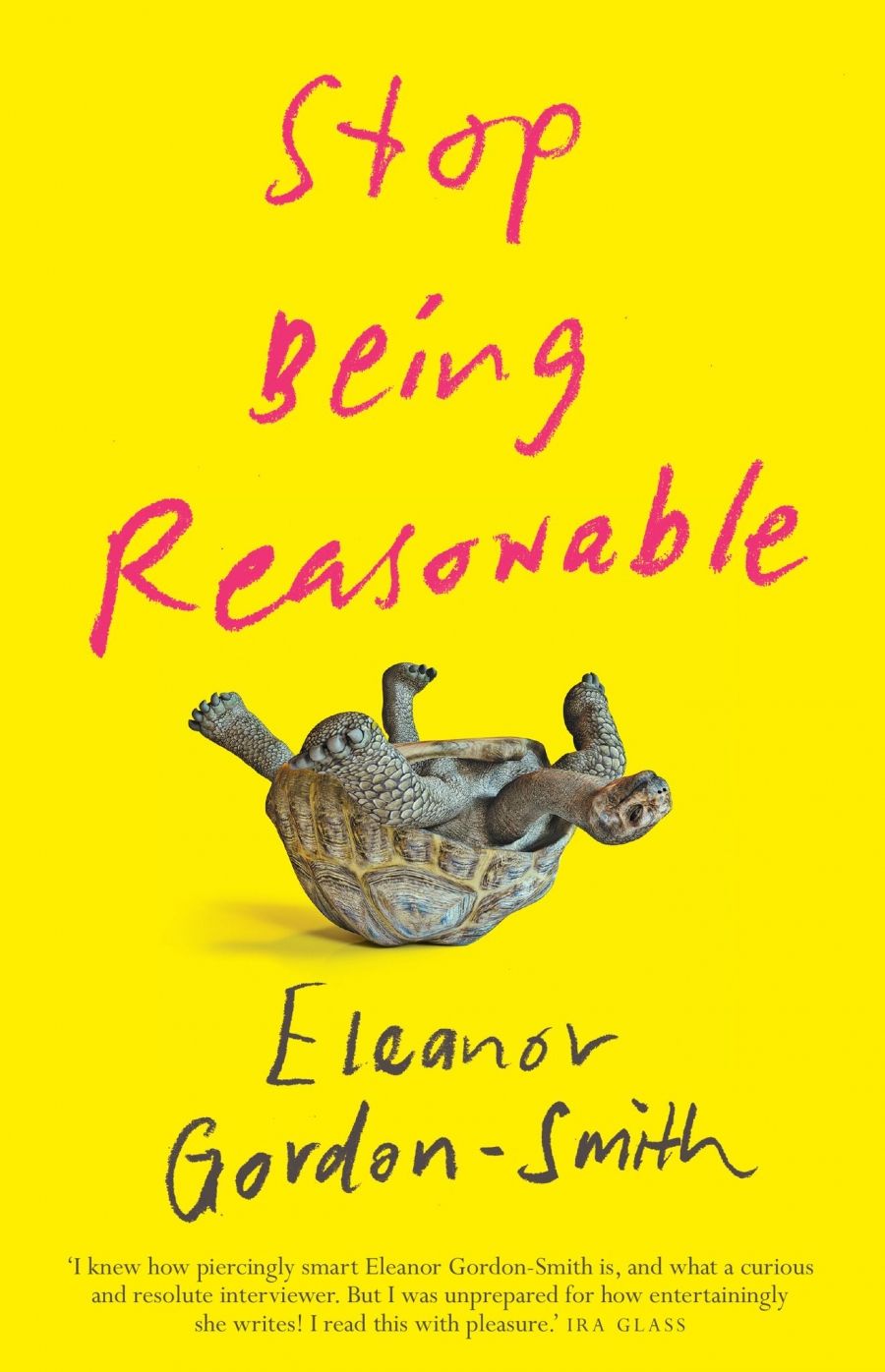
- Free Article: No
- Contents Category: Cultural Studies
- Custom Article Title: Alex Tighe reviews <em>Stop Being Reasonable</em> by Eleanor Gordon-Smith
- Custom Highlight Text:
If you’ve somehow avoided listening to podcasts, you will have missed out on the recent explosion of long-form audio storytelling – and I mean it, you’ve really missed out. The show which pioneered the form, This American Life (TAL), pulls a cool four to five million listeners each week ...
- Book 1 Title: Stop Being Reasonable
- Book 1 Biblio: NewSouth, $27.99 pb, 204 pp, 9781742235875
As Gordon-Smith tells it in her excellent début book, Stop Being Reasonable, that moment was the beginning of a personal unravelling for her, a kind of inverse Eureka for ‘someone who had always been optimistic about our ability to talk each other into better beliefs’. The best outcome of the experiment was when a man agreed not to slap the asses of women on the street; he said he would still catcall. ‘It took 120 minutes of conversation with one man to get him to commit to not literally assaulting women,’ Gordon-Smith says in the radio piece, and you can hear her deflation. She brought better arguments, skewered their fallacies, and still didn’t change their minds. This is not how it’s meant to go.
Our collective notion of persuasion is that rational argument will inevitably produce better beliefs in participants and listeners. It’s around this popular notion that we’ve built our current public discourse (think: talkback radio, Q&A, town hall debates, the Facebook comments section), and it’s this ‘rusted-on idea of persuasion’ as argumentation that Stop Being Reasonable spends two hundred pages debunking. ‘[I]n our haste to congratulate ourselves for being reasonable,’ Gordon-Smith writes, ‘we accidentally untied the very notion of “rationality” from its rich philosophical ancestry and from the complexity of actual human minds.’
Using her own Kings Cross story and the stories of six other ordinary people, Gordon-Smith identifies the assumptions that underpin the old model of ‘being reasonable’, and introduces contemporary philosophy that gives us reason to rethink those assumptions. In her arguments with catcallers, for example, Gordon-Smith went in assuming that her words would carry just as much weight as those of her interlocutors (wrong). Another story, of a man losing faith in his doomsday cult, probes our notions of when it is okay to rely on the word of others as evidence for our own beliefs. There’s a chapter on doubt, a chapter on the role of reason in our emotional lives, a chapter on the costs of suspended judgement, and, my personal favourite, a chapter that springboards from the story of a reality-television contestant into a profound discussion of selfhood, with an incredible extended metaphor about the predictability of the plotlines in Keeping Up with the Kardashians.
Yes, the Kardashians in a book of philosophy. That’s something to note about Stop Being Reasonable: it is curious and intelligent and deeply researched and genuinely thoughtful, and at the same time consistently entertaining to read. Gordon-Smith has an instinct for entertainment that’s present in her previous work but flourishes in Stop Being Reasonable – her rhythmic patter of thoughts and gags reads like someone giving a TED talk at the Comedy Cellar. Not all of her metaphors land, but most do. Her characterisations rate a mention too: one man is memorably described as ‘like a turtle tasked with solving a serious crime’.
 Eleanor Gordon-Smith (photograph via Kill Your Darlings)
Eleanor Gordon-Smith (photograph via Kill Your Darlings)
Two things really excite me about Stop Being Reasonable. It’s a nerd’s dream to see Wittgenstein and Cavell and Manne and Langton and Fricker in a book so pleasurably readable. If you want to introduce someone to philosophy, give them this book.
Also thrilling is Gordon-Smith’s commitment to blending narrative techniques with academic philosophy. She has taken the formula of TAL-style storytelling and used it as an invitation, not to the whimsical thoughts of TAL, but to serious philosophical thought. There’s another person making a similar hybrid of philosophy and journalism: Professor Barry Lam, on his podcast Hi-Phi Nation (likewise influenced by TAL). Lam once wrote about the making of his program that, ‘Human stories are not neatly packaged like philosophical thought experiments. They have nuance and complexity precisely of the kind philosophers like to abstract away from to make arguments … I learned that what you lose in tidiness you gain elsewhere, as long as you’re up to the challenge of confronting rather than asking your audience to abstract away from the complexity.’
This hybrid of journalism and philosophy will benefit both: more thought will make for better journalism, and more specificity for better philosophy. Stories get closest to that bipedal blend of cognition and feeling that is specifically human. I could be wrong, but this new hybrid form feels vital and purposeful, and like it’s only just begun.


Comments powered by CComment